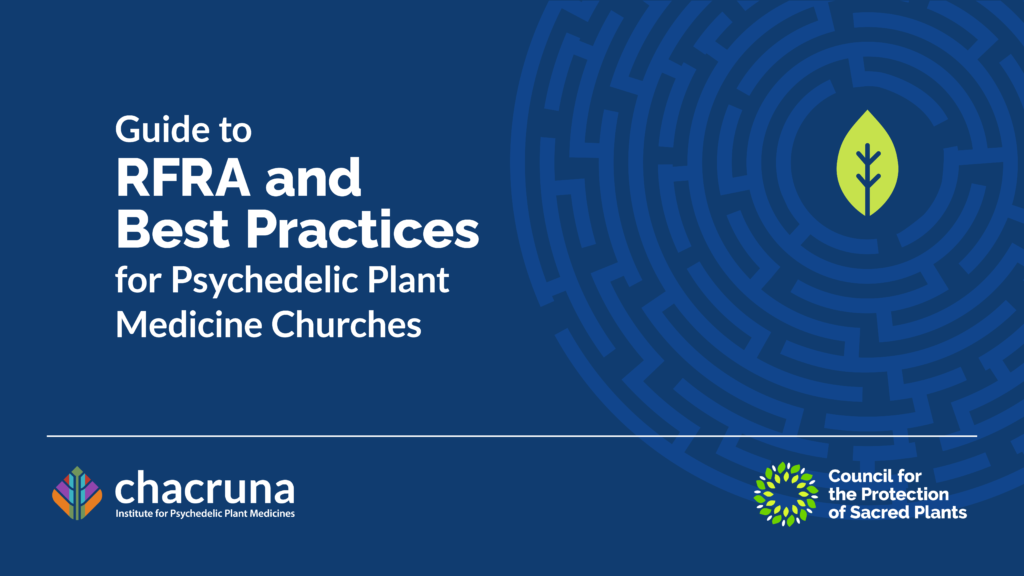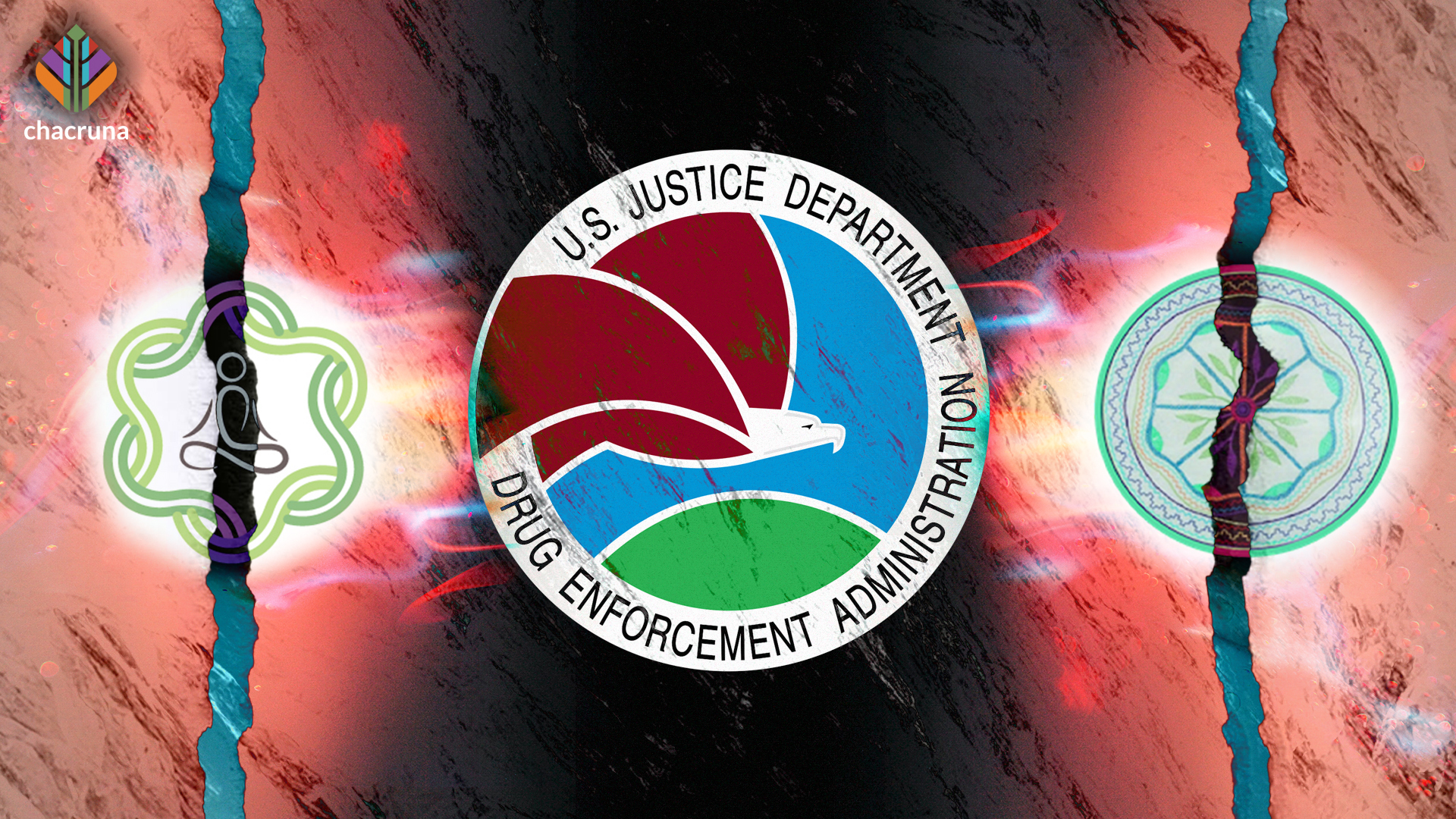Soul Quest Church of Mother Earth v. Garland
On March 4, 2022, after a long wait, Judge Wendy Berger of the Middle District of Florida dismissed Soul Quest’s federal lawsuit against the DEA without prejudice, leaving the hard-battling ayahuasca church one remaining step in their efforts to secure the right to use ayahuasca—to appeal to the 11th Circuit Court of Appeals.
In 2016, upon discovering Soul Quest offering ayahuasca retreats online, the DEA “invited” Soul Quest, a Florida church, to petition the administration for an exemption from the Controlled Substances Act to serve ayahuasca to its members. Soul Quest opted to cooperate with the DEA’s invitation, submitting its petition in 2017—then waited for three long years for a response from the DEA before filing suit in federal district court to force the DEA to consider their petition or, in the alternative, to request an exemption from the CSA under the Religious Freedom Restoration Act of 1993 (RFRA) directly from the district court.

Download Guide to RFRA and Best Practices for Psychedelic Plant Medicine Churches
When Soul Quest filed their case in 2020, the DEA requested a stay of proceedings—the purpose of which has been disputed—the DEA claiming the stay was to conduct an investigation and to process Soul Quest’s petition under the CSA. Soul Quest, though it had agreed to the stay, claimed the stay was to engage in a negotiation for the exemption. During the 120-day stay, which was extended by the parties for an additional 120 days, the DEA met with staff and executives of the Soul Quest organization, did a site visit, and, according to Soul Quest’s pleadings, appeared to engage in negotiations with the church. However, on April 16, 2021, the DEA denied SQ’s petition outright claiming, among other things, that SQ was not in fact a church but a healing center and therefore not entitled to an exemption under the Religious Freedom Restoration Act (“RFRA”).
Join us for our next conference!
Soul Quest promptly renewed their petition to the court, requesting the court set aside the DEA decision and give an exemption under RFRA directly. However, the DEA countered by claiming the district court no longer had jurisdiction to hear the case under 21 U.S.C. §877 which states that a final decision from the DEA may only be heard by the next higher court–the circuit court of appeals. The effect of the DEA pushing the case up to the next higher court is that the evidentiary record created by the DEA would be inherited by the appellate court and that the court of appeals would have to give deference to the DEA’s decision—making a win at the appellate level more remote than ever.
In agency law—law pertaining to the various administrative agencies in the United States—agency decisions are given “agency deference” by courts because, presumably, agencies are more qualified to decide matters before them than district (trial) courts are. In this case, the district court refused to retain the case before it and is now forcing Soul Quest to seek redress at the appellate court level where the appellate court will see the facts of the case as the DEA has developed it—which Soul Quest’s pleadings claim is non-neutral, unfairly casts the organization in a negative light, and for which the DEA has no statutory authority.
For the rules of “agency deference” to apply to the DEA in this case, certain conditions must be met. First, Congress must have delegated power to the agency for the issue under consideration. Second, the agency must have promulgated regulations pertaining to that particular issue under the Administrative Procedure Act and the regulations must have undergone the scrutinizing process known as “Notice and Comment.” Congress has not given the DEA express authority over the religious use of a controlled substance in the body of the CSA and the DEA has never promulgated any regulations regarding RFRA in compliance with the APA.
On the other hand, the DEA does have authority over the manufacture, importation, and distribution of controlled substances broadly. Importantly, however, when a claimant voluntarily submits to the authority of a governmental agency, as Soul Quest did by petitioning the DEA directly, that claimant cannot later complain such authority is improper.
Meanwhile in the Arizona Yagé Assembly v. Garland Case
Four days after the Florida judge dismissed the Soul Quest case, Department of Justice attorneys filed the “Defendants’ Notice of Supplemental Authority” in the federal district court case hearing the Arizona Yagé Assembly (“AYA”) case referring to the order issued by Judge Berger claiming the decision in the Florida case bears on related arguments in the AYA case. The Notice did not provide any specific reason why the Florida case should bear upon the AYA case nor did it provide any distinguishing facts that might make the Florida case inapplicable to the AYA case.
The Arizona case has been stalled out pending resolution of a case management issue with the plaintiffs. Keeping in mind that district court judges are highly motivated to clear cases out of their dockets, the Arizona judge will be looking for any reason to dismiss the case. If the judge believes he or she does not have jurisdiction because the higher court has jurisdiction, it might dismiss the case, forcing this matter up to the appellate court and giving “agency deference” to the DEA in this case as well.
If the district court decides to dismiss the AYA case and defer to the DEA’s decision-making, that may subject most every plant medicine churches at the mercy of an unfriendly, biased agency keen to close the door on religious freedom.

Discover the Indigenous Reciprocity Initiative of the Americas
Council for the Protection of Sacred Plants’ Recommendation
Chacruna’s Council for the Protection of Sacred Plants urges extreme caution when directly petitioning the DEA, observing that direct petitions have been entirely fruitless. No church or religious organization has ever been successful in obtaining an petition-based exemption from the CSA since RFRA was passed.
Because the DEA’s subject matter jurisdiction is questionable and because the DEA has not engaged in proper rulemaking pertaining to the religious use of controlled substances, petitioning to the DEA directly is not required by any enforceable federal regulation. Such petitions are potentially doomed from the outset unless a church has resources sufficient to appeal a DEA decision to a circuit court of appeals.
More broadly, continuing to engage the DEA on their terms and with all the government’s financial and legal resources brought to bear against small and modest religious organizations also risks creating even higher hurdles for other psychedelic plant medicine churches who desire to serve the sacrament legally and responsibly.
Take a minute to browse our stock:
Did you enjoy reading this article?
Please support Chacruna's work by donating to us. We are an independent organization and we offer free education and advocacy for psychedelic plant medicines. We are a team of dedicated volunteers!
Can you help Chacruna advance cultural understanding around these substances?















